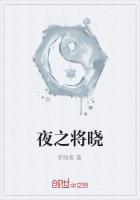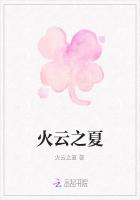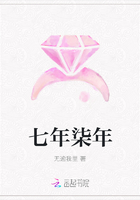爱情其实是个很脆弱的东西,它是需要两个人细心维护的。当曾发誓相爱的两个人,开始接受新的爱情,并不是因为有第三者的插入,而是那两个人的爱情已经破裂了。正所谓,一个巴掌拍不响,牢固的爱情不会因为有第三个人的存在而破灭。只有爱情已经破灭,第三者才能插进来。
bruise [bru:z] v. 受伤;擦伤;淤伤;青肿
The blow bruised his leg.
这个打击使他的腿青肿。
commodity [k'mditi] n. 商品;日用品
May is the season for this commodity on our market.
五月份是这种商品在我方市场上销售的季节。
intruder [in'tru:d] n. 侵入者;干扰者;妨碍者
The intruder whipped out a knife (from his pocket).
闯进来的人突然(从他的衣袋里)掏出一把刀来。
integrity [in'tegriti] n. 诚实;正直;完整;完善
Honesty: Demonstrating integrity; not giving in to temptations to
whitewash the facts.
诚实:展示正直品质,不屈服于掩盖事实真相的诱惑。
这种误解在很多人心中普遍存在——爱情像商品一样,可以被“偷走”。
导致决裂的不是插足者,而是两人之间缺乏真正的感情。
女人或男人,只不过是为解除名存实亡的婚姻找的一个借口罢了。
We tend to treat persons like goods.
tend to:常常;倾向于;注意;关心(美口语)
...but the lack of a real relationship.
lack of:没有;不够;不足;缺乏
金钱买不到幸福
Money Doesn' t Buy Happiness
佚名 / Anonymous
Does money buy happiness? Not! Ah, but would a little more money make us a little happier? Many of us smirk and nod. There is, we believe, some connection between fiscal fitness and feeling fantastic. Most of us would say that, yes, we would like to be rich. Three in four American collegians now consider it "very important" or "essential" that they become "very well off financially". Money matters.
Well, are rich people happier? Researchers have found that in poor countries, being relatively well off does make for greater well-being. We need food, rest, shelter and social contact.
But a surprising fact of life is that in countries where nearly everyone can afford life's necessities, increasing affluence matters surprisingly little. The correlation between income and happiness is "surprisingly weak", observed University of Michigan researcher Ronald Inglehart in one 16-nation study of 170 000 people. Once comfortable, more money provides diminishing returns. The second piece of pie, or the second 100 000, never tastes as good as the first.
Even lottery winners and the Forbes' 100 wealthiest Americans have expressed only slightly greater happiness than the average American. Making it big brings temporary joy. But in the long run wealth is like health: its utter absence can breed misery, but having it doesn't guarantee happiness. Happiness seems less a matter of getting what we want than of wanting what we have.
Has our happiness floated upward with the rising economic tide? Are we happier today than in 1940, when two out of five homes lacked a shower or tub? When heat often meant feeding wood or coal into a furnace? When 35 percent of homes had no toilet?
Actually, we are not. Since 1957, the number of Americans who say they are "very happy" has declined from 35 to 32 percent, Meanwhile, the divorce rate has doubled, the teen suicide rate has nearly tripled, the violent crime rate has nearly quadrupled (even after the recent decline), and more people than ever(especially teens and young adults) are depressed.
I call this soaring wealth and shrinking spirit "the American paradox". More than ever, we have big houses and broken homes, high incomes and low morale, secured rights and diminished civility. We excel at making a living but often fail at making a life. We celebrate our prosperity but yearn for purpose. We cherish our freedoms but long for connection. In an age of plenty, we feel spiritual hunger.
金钱买得到幸福吗?买不到!但是,钱多一点儿,幸福是不是也会多些呢?我们很多人会咧嘴一笑,点点头。我们相信,财富的多少与精神愉悦之间有些关联。多数人会说:我们确实想成为富人。现在,美国大学生中有3/4的人认为,“经济的富足”是“非常重要”或“必不可少”的。金钱的确重要。
富人更幸福吗?研究人员发现,在一些贫困国家里,相对富足的确能使安康的可能性更大。因为我们需要食物、休息、庇护所和社会联系。
但是,生活中有这样一个令人惊讶的事实。在那些几乎每个人都能拥有生活必需品的国家里,财富的增长对幸福的影响并不大。收入和幸福之间的相互关系是“令人惊异的微小”。密歇根大学研究员罗纳德·英格利哈特在他的调查报告中是这样评述的——他曾对16个国家的17万人口作了调查。一旦人们的生活安逸了,增加的物质财富所带来的幸福感则会逐渐降低。第二张馅饼永远没有第一张味道鲜美,或者,第二次10万美元带来的兴奋感远不如第一次强烈。
甚至是彩票中奖者和《财富》杂志上选出的全美国最富有的前100人都表示,他们感受到的幸福只是比一般美国人稍微多一点点而已。发大财带来的只是暂时的快乐。但是,从长远来看,财富就像健康一样,完全缺失会使苦难滋生,但拥有并不能保证幸福。幸福似乎并不是得到我们想要的东西,而是想要我们拥有的东西。
经济浪潮回升,我们的幸福感是否会随之上涨呢?今天,我们是否比1940年更幸福呢?那时候,2/5的家庭还没有淋浴或浴盆,往炉子里添一块木头或煤炭就是取暖了,35%的家庭没有卫生间。
事实上,我们并没比以前更幸福。从1957年以来,美国说自己“很幸福”的人数从35%降至32%。与此同时,离婚率是原来的两倍,青少年自杀率几乎是原来的三倍,犯罪率则高达原来的四倍(尽管最近有所降低),消极的人(特别是青少年)越来越多,超过了以往任何时候。
这种财富飞速增长,精神却不断委靡的状况,我称之为“美国矛盾”。我们拥有了大房子,家庭却破裂了;收入高了,精神却更低迷;有了可靠的权利,却失去了礼貌;我们善于谋生,却往往不会营造生活;我们庆祝成功,又怀念目标;我们珍视自由,却又渴望交流。在这个物质充裕的时代,我们的精神却感到饥渴。
精神世界的幸福与物质世界的幸福原本就是两个东西,它们可以相互补充,锦上添花。但是不能替换,也不能对等。
smirk [sm:k] v. 假笑;得意地笑
Come on, professor, does not smirk at me like that.
拜托!老师,你不要那样对着我假笑。
misery ['mizri] n. 痛苦;悲惨
Hang the doubts, the misery of waiting!
让疑惧、等待的痛苦见鬼去吧!
morale [m'r:l] n. 士气;斗志
The boss is a father figure to all the staff where I work, and morale is
very high.
这个老板受到我工作的地方所有职员的尊敬,因而大家的精神非常振奋。
yearn [j:n] v. 渴望;想念
After such a long winter,we yearn for warm sunshine.
经过这漫长的冬天,我们渴望见到温暖的阳光。
一旦人们的生活安逸了,增加的物质财富所带来的幸福感则会逐渐降低。
幸福似乎并不是得到我们想要的东西,而是想要我们拥有的东西。
在这个物质充裕的时代,我们的精神却感到饥渴。
The correlation between income and happiness is "surprisingly weak", observed University of Michigan researcher Ronald Inglehart in one 16-nation study of 170 000 people.
between and:在……中间
The second piece of pie, or the second 100 000, never tastes as good as the first.
as good as:和……几乎一样;实际上等于;和……一样好
羡妒满花园
Garden of Envy
佚名 / Anonymous
I know gardeners well, for I am a gardener, too, but I experience gardening as an act of utter futility. I know their fickleness, I know their weakness for wanting in their own gardens the thing they have never seen before, or never possessed before, or saw in a garden (their friends'), something which they do not have and would like to have.















